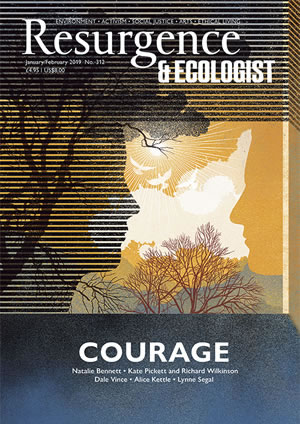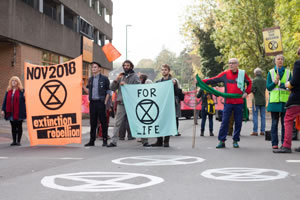What do we do in the face of climate breakdown? How does this existential threat affect you? How does it affect the way you wish to live your life? I believe our dying times are an opportunity to really live well if we pay attention to how precious life is. We come to peace when we understand that life is far bigger than any of us as individuals. We can understand our role in the service of life as we draw a line of worthy ancestors, those who came before us and those who will come after us. In some Indigenous cultures they talk about protecting the next seven generations. In the age of ecological meltdown when our children’s future is set to unimaginable catastrophes it’s our job to really feel the grief and then ask how we intend to act.
We need a new approach in the face of this catastrophe. We need the world’s governments to introduce a world-war-two-style mobilisation. The kinds of thing it would involve are reducing carbon emissions and reducing demand; a massive investment in finding safe ways of taking carbon out of the atmosphere; improving transport; regenerative agriculture and restoration of ecosystems. It’s all technologically and economically possible in a short space of time. Solutions are there. The absolute key issue is how to create enough political pressure. It’s up to us to create that political will and there are tried and tested techniques for doing that. We’re talking about civil disobedience that escalates into a rebellion – an uprising.
Climate change is an issue of morality. What’s happening is evil and it has to be stopped. When a government is doing something horrendously immoral it has to be challenged. That’s irrespective of party politics. Political theorists from across the political spectrum agree that rebellion is justified once the establishment fails.
The good news is that it doesn’t need that many people. The Freedom Riders of the United States Civil Rights movement in the 1960s started with a small group of people and culminated with around 300 imprisoned by the end of that summer. It led to a fundamental change in policy. If it takes around 300 people in America, what does it take in the UK? We think we need about 2 million people in active support. It might be 5,000 people willing to engage in civil disobedience, or 500 people in jail. What we do know is that the more high-stake the action is, the fewer people are needed to make desired change. And to begin is the most important next step.








